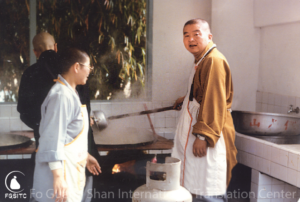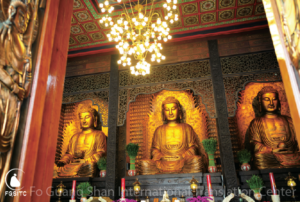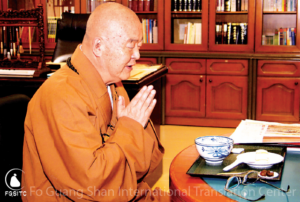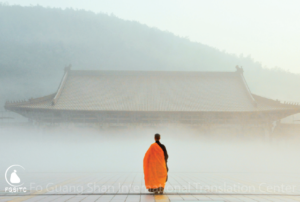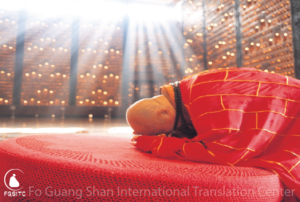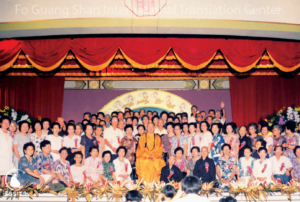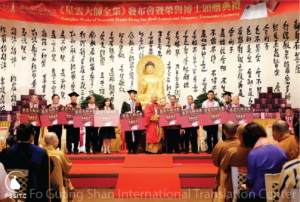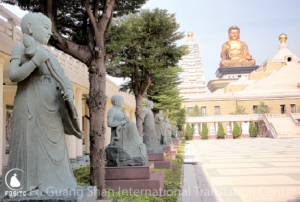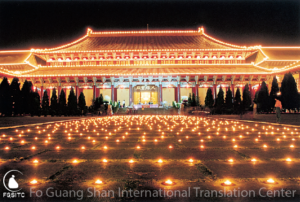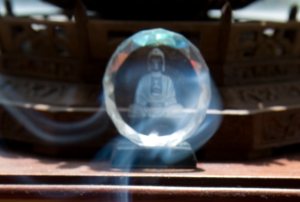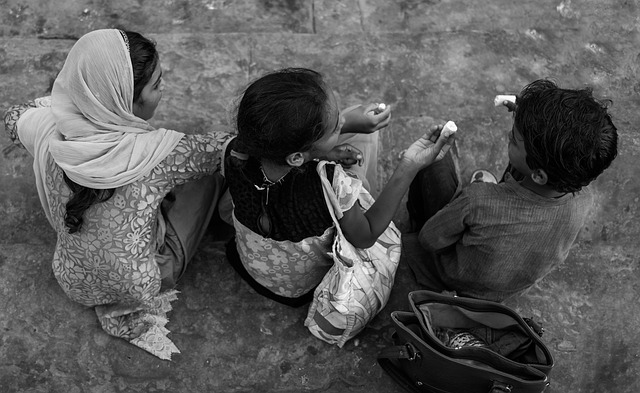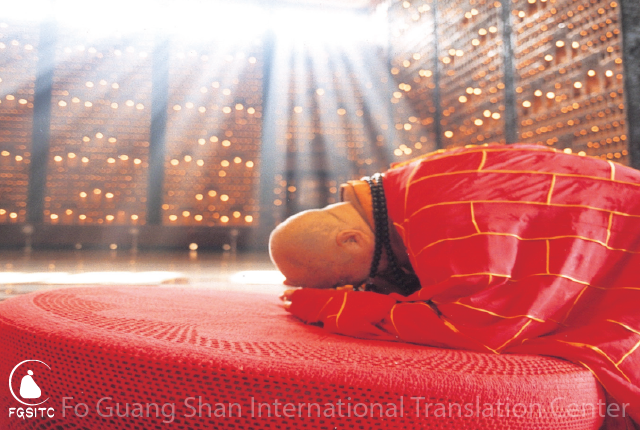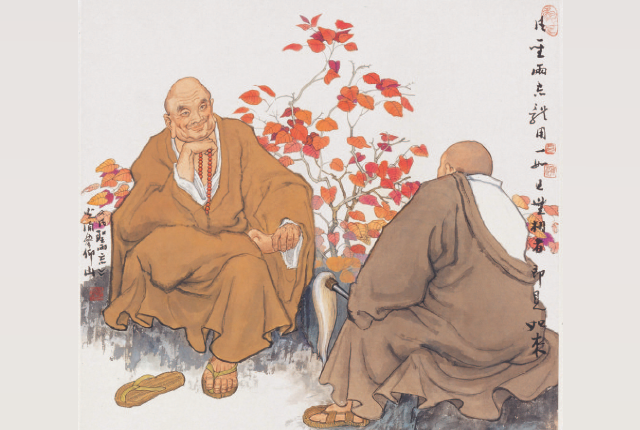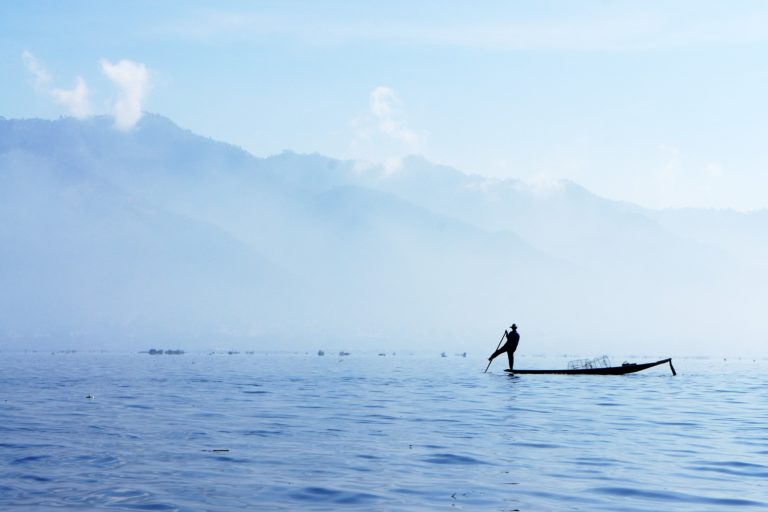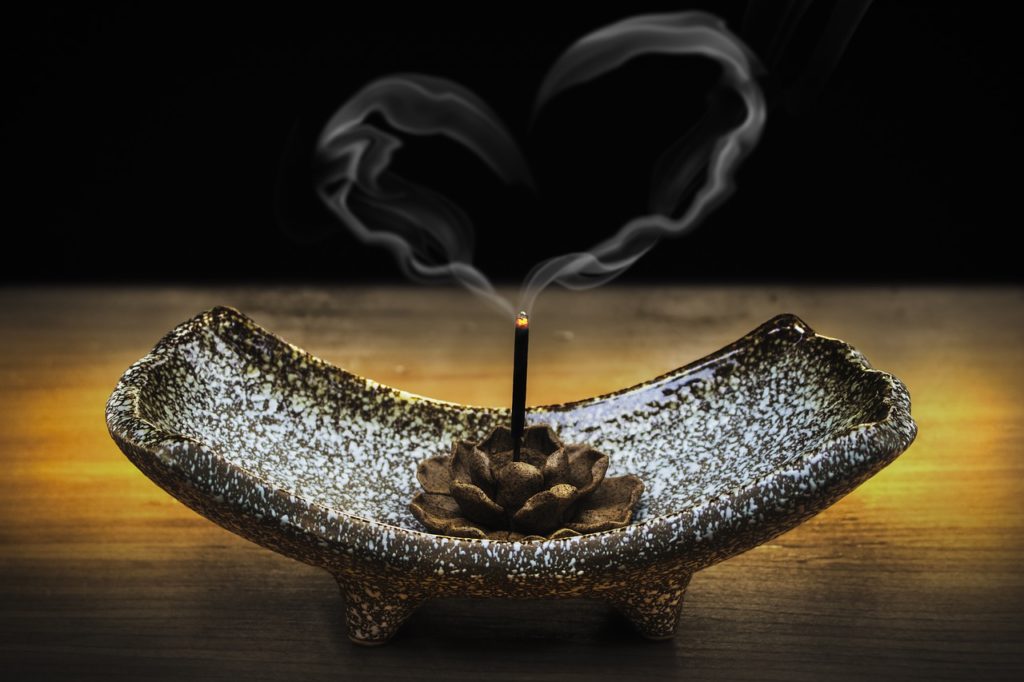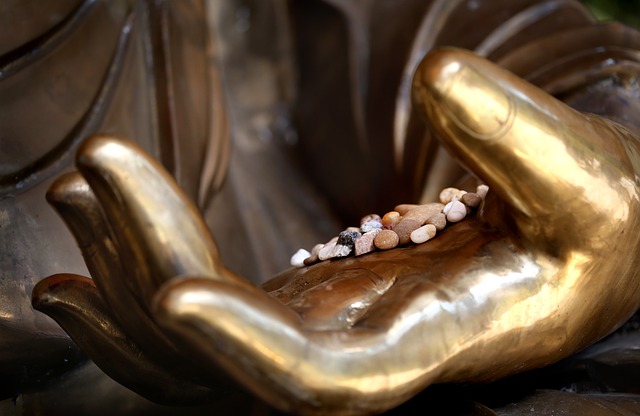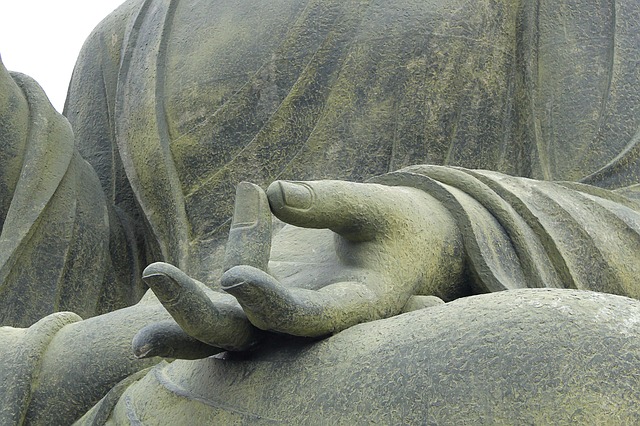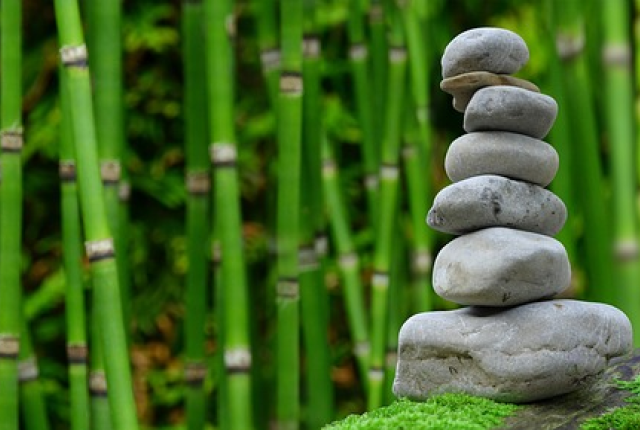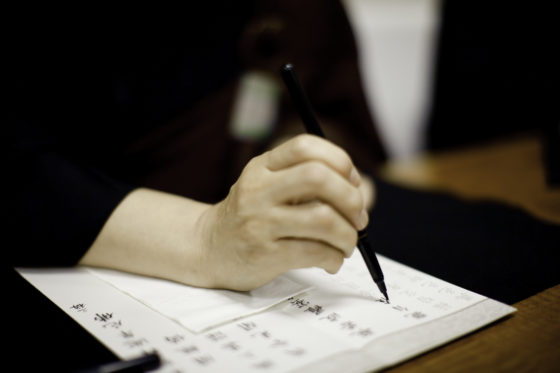Highlights from the book I Am Not a Monk “Sponging Off” Buddhism, by Venerable Master Hsing Yun
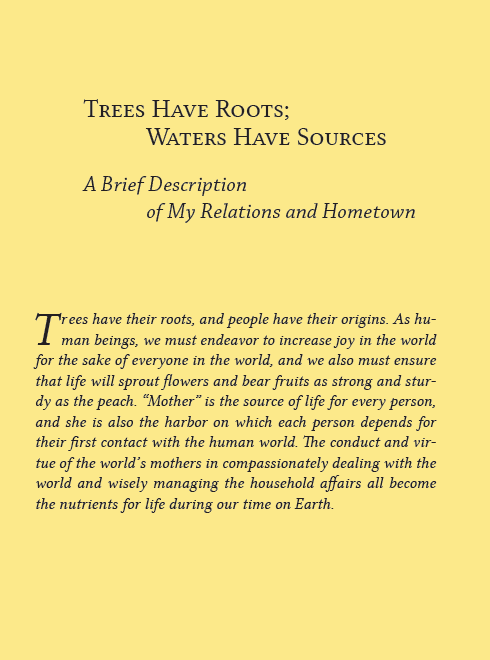
Trees Have Roots; Waters Have Sources A Brief Description of My Relations and Hometown
Trees have their roots, and people have their origins. As human beings, we must endeavor to increase joy in the world for the sake of everyone in the world, and we also must ensure that life will sprout flowers and bear fruits as strong and sturdy as the peach. “Mother” is the source of life for every person, and she is also the harbor on which each person depends for their first contact with the human world. The conduct and virtue of the world’s mothers in compassionately dealing with the world and wisely managing the household affairs all become the nutrients for life during our time on Earth.
When I was a child, someone asked me, “Where do you live?” I said, “In Xiannü Temple Town.”
As a young person joining the monastic order in Nanjing, people would also frequently ask me where I was from, and I would say, “I am from Jiangdu District in Yangzhou.”
Yes, I was born in a small town, Xiannü Temple Town, in Yangzhou, Jiangsu Province, China. It was about six miles from Yangzhou city.
I was born and raised during that period when war raged all around, streets and alleyways were mostly destroyed, and rubble was everywhere. At the end of 1937, the Japanese Army had occupied Nanjing, and we suddenly lost contact with my father, who was doing business in Nanjing. In early spring of 1938, my mother took me to Nanjing in search of my father’s whereabouts, and I met a monastic from Qixia Monastery who asked me whether I was willing to join the monastic order and become a monk. I answered, “Yes!” Thus, I joined the monastic order.
Since this had to do with the search for my father, the causes and conditions for my joining the monastic order could be regarded as having been bestowed by my father. “Trees have roots; waters have sources” means that every event and every person all have their origins. The family relations on my father’s side and my mother’s side are the source of my blood relationships, so I will trace back some events related to my family and my hometown, in order to show what I commemorate and feel thankful for in my life.
- My Mother, Liu Yuying—The Grandma of a Big Family
Having never studied and being illiterate, my mother could still recite lines of poetry that left one deep in thought; for example:
Wilted lotuses no longer possess the canopies holding off rain;
Faded chrysanthemums still have their branches so proud in the frost.
This is a couplet from Su Dongpo’s [1037–1101] poetry that I heard her recite aloud decades ago. In fact, not only did she recite this verbally and mentally, but my mother even spent her entire life putting the meaning of these couplets into practice. Consequently, it was also no wonder that she could just about produce an impromptu comment on just about any topic from astronomy to geography.
My childhood was spent with my mother as we lived through hard times, yet my optimistic mother did not feel any hardship despite our poverty. I never saw her express any worry or sadness due to poverty. She often told us that a person must be able to be poor but not be destitute.
If one sees the dazzling array of items on sale but has no wish to buy them, then they are considered a person of wealth. In view of this notion, throughout her life she never enjoyed buying, nor did she enjoy acquiring things. On many occasions when there was a bit more money in the house than usual, she would immediately exchange it for a lot of loose change and give it to people in need, making donation to form affinities. Her reasoning was, “A penny can hound a hero to death, yet a penny can save a hero too.”
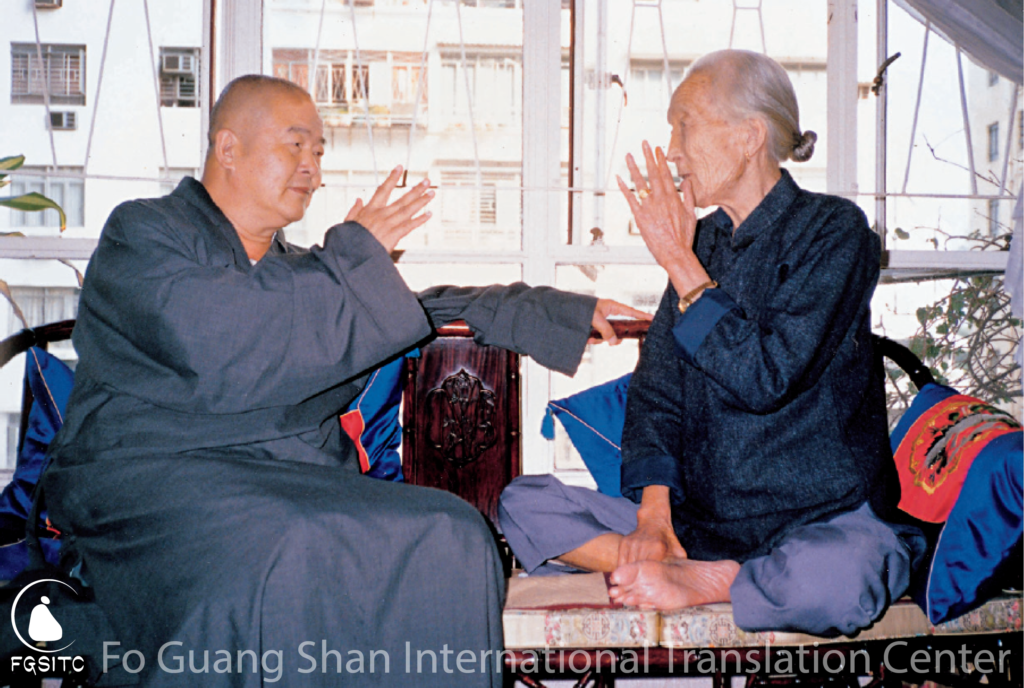
The Venerable Master is his mother’s audience.
1994
Throughout her life, there were a few events that made my mother proud. In 1990, my mother was finally able to come to Taiwan and visit Fo Guang Shan, which was founded by her son. At the Devotees’ Gathering of twenty thousand people, everyone warmly cheered loudly to her, “Hello, Grandma!” She had never experienced such a scene in her life, yet she neither had stage fright nor became flustered. She happily waved both hands in a warm and lively manner as she greeted everybody. Then she gave everyone a short teaching in the Yangzhou dialect, and I acted as my mother’s interpreter. She said:
Fo Guang Shan is indeed the Pure Land of Ultimate Bliss; heaven is here in the human world. I hope that everybody will practice well. In the past, Guanyin Bodhisattva attained enlightenment on the great Mount Gandha, and I hope that everyone will gain enlightenment at Fo Guang Shan. Everyone has been so good to me, but I have nothing to give you all, so I can only give my son to everybody.
She was true to her words and diligently put them into practice her whole life. Staying happy with a simple life, being content, and even “deriving moral courage from poverty and destitution” constitute the best portrayal of my mother’s life. Her dignified presence and the courage to stand up for what is right can be said to represent the two characteristics with which she was born.
One day, at Hsi Lai Temple’s Buddha Hall in the United States, I said, “Let me light the incense for you to worship the Buddha.”
My mother replied, “Why would the Buddha want our incense? Why would he want our flowers? The Buddha only wants the simple heart of us ordinary people.” When I was with my mother, she usually held forth on the Dharma while I listened with respectful attention.
There was also one time at Hsi Lai Temple, I was giving a talk on The Diamond Sutra, and I did not know that my mother was sitting at the back listening. She waited until I came down to criticize me for speaking in such arcane terms. How could I have told everyone “no notion of self, no notion of others, no notion of sentient beings, no notion of longevity?” No notion of self is all that needed to be said. If one went on with no notion of others, then there is no one else to look upon or think about, so what would be the point of practice?
Upon hearing this from my mother, I was at a loss for words. At the same time, I also grasped that my mother’s insistence on “having a notion of others” precisely clarified the Humanistic Buddhism that I was endeavoring to carry out. My mother explained the Dharma for us; it can be said that she was a classic of “the study of humanity,” as she wanted us to see sentient beings and to bear sentient beings in our heart.
- My Hometown Yangzhou and the Seat of My Lineage
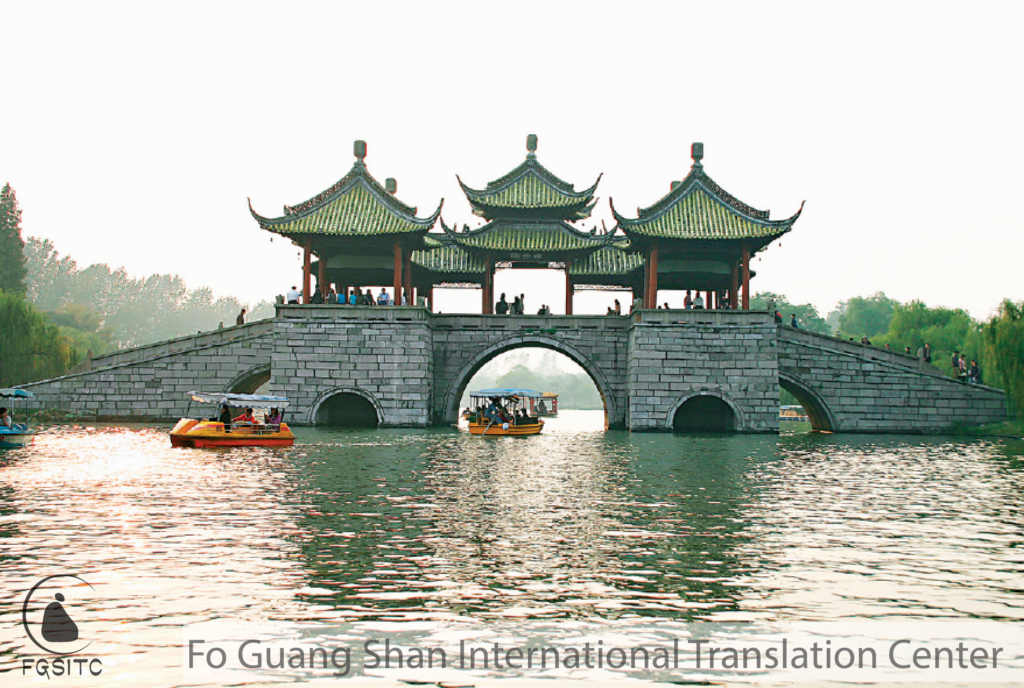
Symbol of Yangzhou: the Five-Pavilion Bridge.
Photo by Venerable Hui Yan
Yangzhou is the hometown of my parents; including my childhood and early teens, I spent some twelve years in total living in Yangzhou. When I was a bit older, I traveled and studied at Qixia Monastery in Nanjing and other famous ancient temples and Buddhist colleges for another twelve years. I arrived in Taiwan in 1949. It was not until seventy years later when I looked back on the past that I had a sense of how the local
conditions and customs along the Yangtze River fostered within me the language and character of the Yangzhou people. The rains and grain of Taiwan also nurtured me, enabling me to “establish a foothold in Taiwan, and keep China in my heart, walking toward the world.”
Before I turned fifty, all my work of propagating Buddhism had been focused on various countries throughout Asia, such as Hong Kong, Malaysia, Singapore, Thailand, the Philippines, India, Japan, and so on. It was not until the age of fifty that I went to the United States and made preparations to build temples and house monastics. By the age of seventy, I had been to Europe, Australia, South America, and Africa. In this way, I seemed to be moving farther and farther away from my feelings for my native land. Often people would ask me, “Where are you going?” My answers were always, “I am going back to mainland China,” “I am going back to Taiwan,” “I am going back to Hong Kong,” “I am going back to the United States,” “I am going back to Europe,” or “I am going back to Australia”—even to the point that every stretch of land around the globe is a “hometown” that I would be going back home to.
My entire life had been deeply influenced by my maternal grandmother, along with the addition of the causes and conditions for the Buddhist faith. From a young age, I understood that human life in this world need not demand a rigid adherence to a certain person, a certain activity, or a certain place. In 1989, after a forty-year separation, I returned to Yangzhou for the first time. At the time, I was sixty-three years old. Someone asked me, “How do you feel?” I said:
Seeing the old ladies, I feel like I am seeing the shadow of my maternal grandmother; seeing the women and men, I feel like I am seeing the appearances of my mother and father; seeing the young people, I feel like I am seeing the figures of my classmates back then. This is the feeling I have upon setting foot in Yangzhou and returning home.
Later on, I saw a document, the Local Annals compiled in 1696, which recorded how Taiwan in those days was once under the jurisdiction of Yangzhou. I could not help but feel delighted, because all along for the past seventy years, I had never really left Yangzhou.
Chapter subheadings:
- My Father, Mr. Li Chengbao
- My Mother, Liu Yuying—The Grandma of a Big Family
- My Maternal Grandmother, Mrs. Liu, née Wang
- My Hometown Yangzhou and the Seat of My Lineage
The Author’s Preface, Forewords, Afterword, and Chinese Editor’s Remarks are available to read online.

